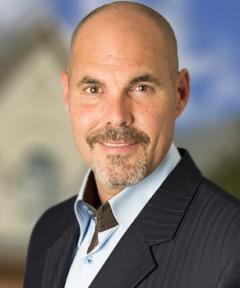by Claudio Grass, Claudio Grass:

Part I of II by Claudio Grass, Hünenberg See, Switzerland
The middle class in the West has been shrinking for years, but after the covid crisis and especially after the inflation explosion, whatever was left of it is now basically under threat of extinction. This has immense sociopolitical implications. When any society, at any point in history, becomes divided into haves and have nots, instability and dangerous tensions are quick to follow. The decline of Reason and respect for the fellow man and their property, feelings of injustice and desperation make any kind of debate and civilized dialogue impossible and the worst kind of “leaders” emerge to “represent” both sides.
TRUTH LIVES on at https://sgtreport.tv/
We saw this play out countless times in the past and there are many examples from across the globe. “Desperate times call for desperate measures” as the saying goes, and those measures are seldom effective, wise or sustainable. However, it is my view that this critical and extremely dangerous point of mass desperation isn’t necessarily reached every time household finances get tight and pressures mount. It is not “today’s” adversity that triggers it, it is “tomorrow’s”. In other words, true desperation is reached when hope is lost, when people no longer see a brighter future or can no longer imagine a way in which things could get better for them or for their children. This is what leads to the polarization of society, what cultivates that toxic “us vs. them” worldview and this is exactly what we are facing right now.
As Reuters reported in mid-January, “the Edelman Trust Barometer, which for over two decades has polled the attitudes of thousands of people, found that economic pessimism was at its highest in some of the world’s top economies such as the United States, Britain, Germany and Japan. Barely two in five people believe their families will be better off in the future, according to a regular global survey that also identified growing levels of distrust in institutions among low-income households.” But it gets even worse. As I’ve highlighted countless times in my writings and in my speeches, deleterious and reckless government policies don’t hurt everyone equally. They destroy those most in need of help, the very same people that politicians claim to be “fighting for”. And those people are not fools, even if they’re being treated as such since time immemorial.
As the Edelman survey confirmed, “higher-income households still broadly trust institutions such as government, business, media and NGOs. But alienation is rife among low-income groups.” And why wouldn’t it be? Most of these people were once part of the lower middle class, until they saw their jobs vanish due to the lockdowns and the business closures and even those who managed to keep them, later saw their paychecks evaporate due to skyrocketing prices. They are now the working poor, putting in the hour’s day in and day out, paying their taxes like the dutiful citizens they are, but struggling to put food on the table. They’ve been let down, they’ve been lied to and they’ve been betrayed by the State and every institution that is connected to it, public or private.
In Europe this phenomenon is especially prevalent, where the collapse of the middle class has been accelerated by the EU and its handling of every recent crisis, from the pandemic to the Ukraine war and the energy crisis. There, the “precariat” (a relatively new term merging “precarious” and “proletariat”) has seen a drastic deterioration in their living conditions and the outlook for their future.
In Spain, patients suffering from chronic illnesses requiring at home dialysis or oxygen machines have been plunged to poverty, many of them forced into the unthinkable position of not being able to afford to keep themselves alive. In Germany, hospitals are also struggling to keep life-saving machines working, due to the energy they consume. In Greece, “hospitalized patients refuse to be discharged when their health improves, because they have nowhere to go and cannot afford the cost of living” as reported by the Hospital Workers Union.
And, unfortunately, this is most likely only the beginning. The weather has been extraordinarily clement so far this winter, helping Europe avoid yet another surge in heating and fueling costs. However, one cannot rely on the mere hope that this good luck will last. The moment the cold starts to bite, a lot more members of the “precariat” will find themselves in similar situations.



